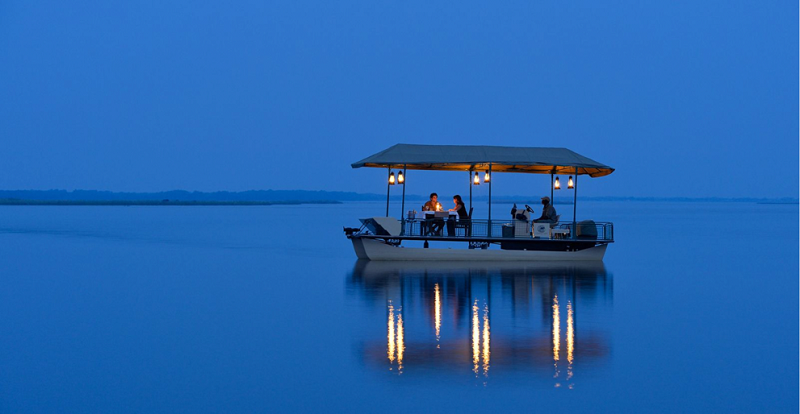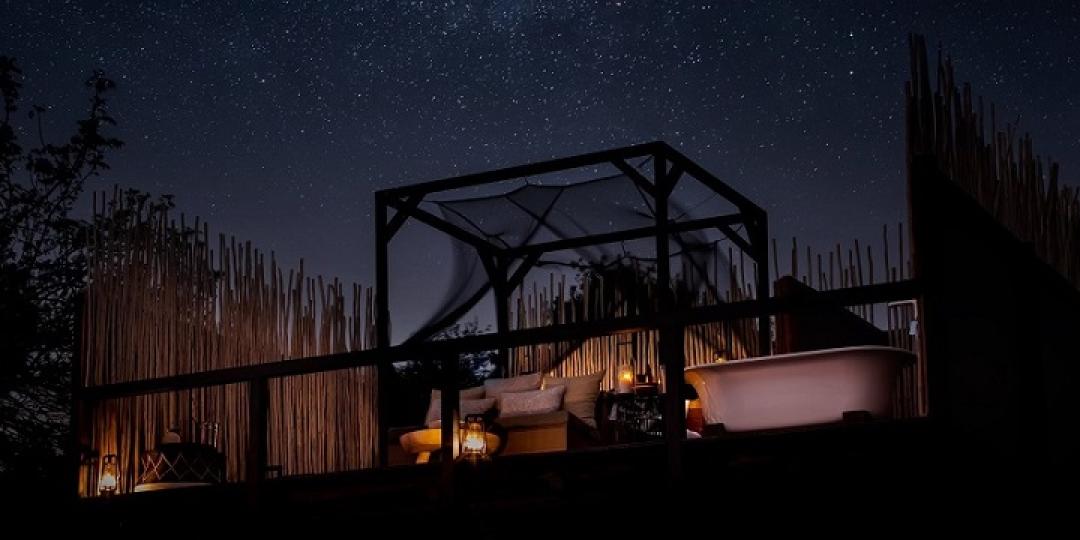A new ‘Star Bed’ tower and ‘Star Drift’ experience will debut at Chiawa Camp in the Lower Zambezi National Park in Zambia on May 1.
Located just downstream of the main camp, the ‘Star Bed’ tower – an open-to-the-skies sleep-out experience – is positioned on the banks of the Zambezi River, overlooking ‘Scout’s Hollow’, an inlet where all types of wildlife drink day and night.
Sitting at four-metres high, the ‘Star Bed’ tower features a queen-size bed with mosquito netting, a bathroom with a rolltop bathtub, wash basin and flushing toilet. On each side of the bed is a red-filtered flashlight to view any nocturnal creatures. The tower’s ground floor is a set up as a photographic hide.
The ‘Star Drift’ experience is an intimate four-course dinner served on a boat while guests ‘drift’ on the Zambezi River.

Chiawa Camp, owned and operated by the Cummings family, is a luxury safari camp that offers a diverse range of activities, game drives, game walks as well as canoeing, boating and angling.
The camp’s eight tents and one safari suite, which all overlook the Zambezi River, have a completely refreshed look, completed while the camp was closed in 2022, and have been upgraded in size (now 100sqm), layout and decor.
The canvas tents have a large bedroom with super-king-size bed, a lounge area with space for a third bed or bunk bed, an indoor/outdoor bathroom, and a sliding door opening on to a private terrace with its most unique feature – Chiawa Camp’s ‘bench wallow’.
In cool weather the ‘bench wallow’ acts as a sunken lounge area and in hot weather, a plunge pool on demand that fills in just a couple of minutes.
The camp’s cuisine is Afro/Euro fusion and is served either at the camp or sometimes in the bush, made with fresh local ingredients.
In 2015 Chiawa Camp and its sister camp, Old Mondoro, became the world’s first certified carbon neutral safari camps, through its support of Biocarbon Partners’ Redd+ project, which protects more than one million hectares of Zambian forests, including along the boundary of the Lower Zambezi National Park.
This certification paved the way for the Lower Zambezi National Park to become the world’s first certified Carbon Neutral National Park. This summer the camp will transition to be completely solar powered.






